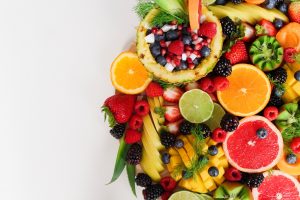
Understanding how healthful living for seniors could be attained is essential.
It is essential for anybody to look into what they consume, mainly when there are particular limitations to your daily diet. When preparing or picking a meal, it can be challenging to decrease fat, sugar, and sodium and retain the tastes most of us love. The remarkable thing is that there are great nutrient supplements available today more than ever which can help you stay healthful and joyful as you mature in age.
You are what you eat: healthful living for seniors begins in the kitchen.
Besides this recommendation of doctors and supplements, there is an infinite supply of recipes as well as meal programs which could be read online, while performing research on healthful eating. Listed below are a couple of ways that seniors can exercise or increase their healthy eating lifestyle.
Avoiding Dehydration
As straightforward as this suggestion may appear, it is among the most critical. Along with drinking water, herbal tea and fruit or vegetable juices provide a significant amount of hydration. A very simple start towards a wholesome lifestyle for seniors!
Reading What You’re Eating
From time to time, food packaging could be deceiving. Ensure that you take the additional time to check out the nutrition facts label in the supermarket when buying food. Pay attention to the serving size and the number of servings you’re actually eating. Furthermore, if somebody gathering ingredients from the supermarket on behalf of their senior, be sure they have an understanding of any dietary restrictions/recommendations that are particular to this individual.
Having Colour on Your Plate
Perhaps you have been advised that it is ideal to have more colour on your plate? Think orange, green, crimson, and purple as it comes to fruit and veggies.
Digestion Friendly Foods
To help with digestion, make sure to include foods like; beans, greens such as broccoli and avocado and oatmeal.
(you could also add flaxseed meal into smoothies, yogurt and baked products to assist with digestion).
Vitamin D
Don’t forget to include Vitamin D. For the elderly, it is highly suggested to include vitamin D in their diets since it is very crucial for bone and muscle preservation and function. It’s been stated that vitamin D may actually help in fall prevention and osteoporotic fracture avoidance, resulting in fewer visits to the emergency area. Vitamin D can be obtained via food, supplements, and managed exposure to the sun.
Minimise Salt Use
Restrict sodium intake. Be cautious when eating out, because a few restaurant-prepared foods could be rich in sodium without you even realising it.
Take Your Time
Do not rush. There are various studies that show eating gradually can be useful to the entire body. Believe: smaller snacks + lower eating + longer chewing = greater digestion! Eating nutritious meal ought to be a marathon, not a rush.
Probiotics
Gut health is essential at any age. Some advantages of taking carbohydrates include elevated amounts of bifidobacteria, a decrease of melancholy, and improved immunity. Probiotics can be found in foods, including milk, juices, soy drinks and yogurt.
Companionship
Eat with a buddy. For seniors, it can be helpful to fight malnutrition by ingestion with a friend or relative. Plus, laughter and dialogue may produce a meal a great deal more pleasurable.
Remember your Omega-3’s
Eating foods which are high in Omega-3’s, for example, nuts and fish, does wonders for the human body. Not only can it be proven to reduce chances for cardiovascular disease and stroke, but it might enhance overall brain function, such as memory and Parkinson’s disease.
With the appropriate tools, a healthy lifestyle could be accessible regardless of what your age. For many seniors, it is important to have a caregiver who understands their nutrient needs to help with fall prevention and health management. The process of introducing a healthy lifestyle to a senior can alleviate stress and lead to a care-free life.
